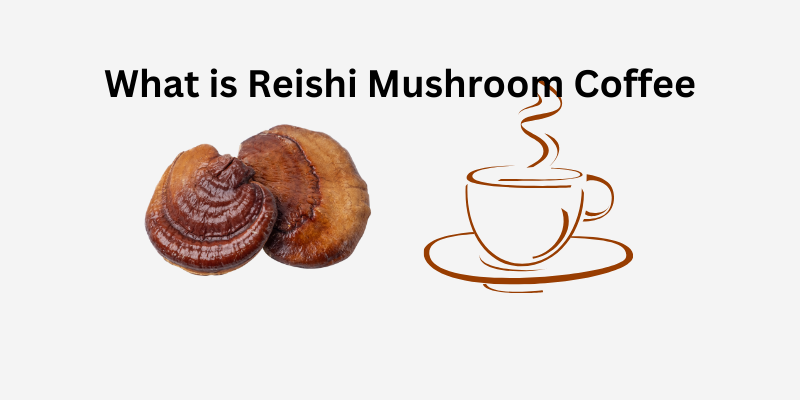Is Reishi Mushroom Coffee Good for Diabetes? Diabetic Type 2 Guide
Hi Dear Friends, Here I am with a new important topic “Is reishi mushroom coffee good for diabetes?“. I know many coffee lovers love to read about their beloved cup of coffee and as mushroom coffee is now trending with its healthy benefits so I decided to write about it.
Dear Diabetics, Don’t worry you don’t need to leave alone your cup of coffee, but I will suggest you read this helpful guide about reishi mushroom coffee before sipping your first. And don’t forget to always consult with your health partner before including anything in your diet.
In this blog post, I will try to explain what is reishi mushroom coffee and how it connects with diabetes. I am sure you will like this short post about reishi mushroom coffee and diabetes connection. so let’s start reading.
Don’t Like Long Article
Read This
The article examines Reishi Mushroom Coffee as a remedy for diabetes, focusing on its composition, benefits, and risks. Reishi mushrooms, esteemed in traditional Chinese medicine, boast potential blood sugar regulation properties. Their bioactive compounds may inhibit sugar digestion, potentially aiding in insulin resistance. Integration into a diabetic diet necessitates caution and close blood sugar monitoring. Professional guidance is advised due to potential allergies, medication interactions, and sourcing concerns. Despite its benefits like immune support and stress reduction, Reishi Mushroom Coffee requires careful dosage consideration and dietary pairing for optimal efficacy within a balanced diabetic management plan.
What is Reishi Mushroom Coffee?
The trendy elixir of Reishi mushroom coffee blends the rich, aromatic profile of coffee with the earthy, slightly bitter taste of Reishi mushrooms. It’s a unique herb-infused beverage that has been gaining popularity due to the perceived health benefits of Reishi. Unlike traditional caffeine-laden coffee, Reishi mushroom coffee offers a smoother, sustained energy boost with the added bonus of various medicinal properties.
Why Reishi Mushroom?
Reishi mushrooms have long been regarded as a symbol of good health in traditional Chinese medicine. Known as the “lingzhi” mushroom, it’s said to enhance the body’s resistance to stress and improve overall health through its immune-stimulating effects.
The Coffee Blend.
When combined with coffee, Reishi mushrooms create a soothing cup with the potential to deliver caffeine’s mental clarity and focus without the jitters.
Is Reishi Mushroom Coffee Good for Diabetes?

The intrigue surrounding Reishi mushroom coffee in the diabetic community is not without reason. Preliminary research suggests that Reishi mushrooms may have the ability to level out blood sugar, making this unique coffee a topic of interest.
However, it’s crucial to approach this promising beverage with a blend of optimism and scrutiny. While it has potential, understanding how it complements a balanced diet and regular medical supervision is key.
Remember, integrating Reishi mushroom coffee into your routine should be a step taken alongside advice from healthcare professionals, ensuring it meshes well with your overall diabetes management plan.

Maybe you are interested in: Is Mushroom Coffee Safe During Pregnancy – Moms Guide
Connection Between Reishi Mushroom and Diabetes.
The complex polysaccharides found in Reishi mushrooms may contribute to the regulation of blood sugar levels. A study published in the British Journal of Nutrition suggests that consuming Reishi mushrooms over 12 weeks may improve insulin resistance, which is a key component in managing diabetes.
Understanding the Science.
Reishi’s bioactive compounds, such as triterpenes and polysaccharides, are the elements that make it potentially beneficial for diabetes. They can act as natural alpha-glucosidase inhibitors, slowing down the digestion of sugars and potentially preventing dramatic spikes in blood glucose levels after meals.
How To Incorporate Reishi Mushroom Coffee Into Your Diet?
Given the potential benefits for diabetics, incorporating Reishi mushroom coffee into your diet can be a simple yet impactful way to supplement your existing treatment plan.
Starting Slowly.
When introducing any new element into a diabetic diet, it’s crucial to monitor blood sugar levels closely. Begin with small amounts and gradually increase intake.
Pairing with Balanced Meals.
To derive the most benefit, consider enjoying Reishi mushroom coffee alongside a meal that contains a good balance of proteins, healthy fats, and complex carbohydrates.
The Role of Consistency.
Consistency is key. To notice any potential impacts on blood sugar, regular consumption at the same time each day may be necessary.
Reishi Mushroom Coffee Health Benefits.
The potential advantages of Reishi mushroom coffee extend beyond blood sugar management. They include:
Immunomodulatory Effects.
Reishi mushrooms are believed to support the immune system and could be particularly beneficial for individuals with diabetes, who may be more prone to infections.
Antioxidant Properties.
The high levels of antioxidants found in Reishi can help combat the oxidative stress associated with diabetes.
Stress Reduction.
The adaptogenic qualities of Reishi may contribute to improved stress management, which is vital for overall well-being and blood sugar control.
Reishi Mushroom Coffee Health Risks.
While Reishi mushroom coffee is generally well-tolerated, there are some potential risks, especially for those with existing health conditions or who are on specific medications.
Allergies.
Allergies to mushrooms are not uncommon. Those with known allergies to fungi should avoid Reishi.
Medication Interactions.
Certain compounds in Reishi could interact with antidiabetic medications, leading to hypoglycemia or low blood sugar. It’s crucial to consult a healthcare professional before adding Reishi to your regimen.
Purity and Sourcing.
The source and purity of Reishi mushroom extracts can vary widely. It’s essential to choose a reputable provider to ensure you’re not ingesting harmful toxins or contaminants.
Amounts and Dosage.
The optimal dose of Reishi mushroom coffee for individuals with diabetes isn’t established, and it’s subject to personal tolerance and response.
Initial Intake.
Start with a low dose—perhaps half a cup of Reishi mushroom coffee—to gauge how it affects your blood sugar levels and overall health.
Increasing Dose.
If your body responds well, gradually increase the intake over several weeks to determine the right amount for you.
Professional Guidance.
Discussing your experience with a healthcare provider can help you establish a safe and effective routine that complements your diabetic care.
The Bottom Line – Is Reishi mushroom coffee good for diabetes?
In conclusion, Reishi mushroom coffee presents an intriguing option for those managing diabetes, offering a blend of potential blood sugar-stabilizing effects, immune support, and stress-reduction benefits. By incorporating this unique beverage into your diet with mindfulness to dosage and meal pairing, you may unlock a new avenue for enhancing your overall health and well-being.
Always remember, that the addition of any new supplement should be done under the guidance of a healthcare professional, ensuring it seamlessly integrates into your existing diabetes management plan. With its ancient roots and modern popularity, Reishi mushroom coffee could be the next step in your wellness journey.
FAQs About Reishi Mushroom For Diabetes.
Is Reishi Safe for Diabetics?
Yes, Reishi mushroom is considered safe for diabetics when used responsibly. Monitoring blood sugar levels and consulting with a healthcare professional are advised to ensure it fits well within your diabetes management plan.
Which Mushroom is Good for Diabetes?
Beyond Reishi, other mushrooms like Maitake and Shiitake have shown potential benefits for diabetes management due to their ability to improve insulin resistance and lower blood sugar levels.
What Does Reishi Mushroom Treat?
Reishi mushroom is traditionally used to support immune function, reduce stress, and improve sleep quality. It’s also being researched for its potential to help manage conditions like diabetes and heart disease.
Who Should Not Take Mushroom Supplements?
Individuals with mushroom allergies, those on anticoagulant or diabetes medication (due to possible interactions), and pregnant or breastfeeding women should avoid mushroom supplements or consult a healthcare provider before use.
Is Reishi Mushroom Coffee Safe for Pregnant Women with Gestational Diabetes?
Pregnant women should avoid Reishi mushroom until more is known about its safety. The American Pregnancy Association advises against its use due to the lack of safety data.







